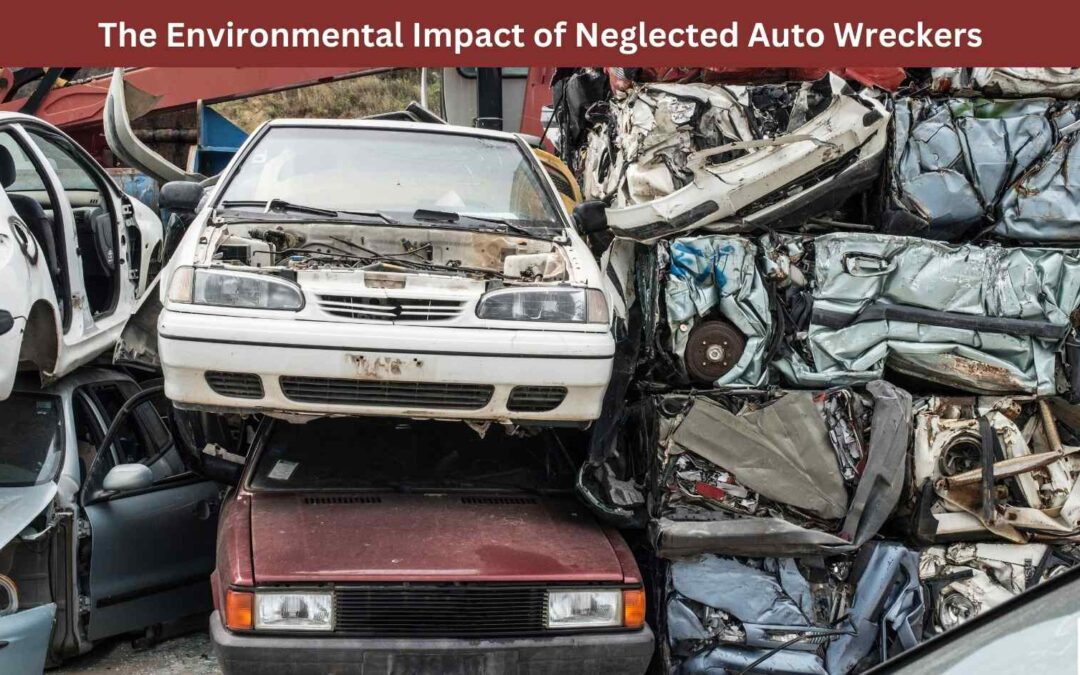In the hustle and bustle of our fast-paced lives, it’s easy to overlook the environmental impact of neglected auto wreckers. Auto wreckers, also known as junkyards or salvage yards, play a significant role in the automotive industry, recycling and salvaging parts from end-of-life vehicles. However, when these facilities are neglected or mismanaged, the consequences can be severe for both the environment and surrounding communities. In this article, we’ll delve into the environmental impact of neglected auto wreckers and explore potential solutions for a more sustainable future.
The Basics of Auto Wreckers
Auto wreckers serve as repositories for old, damaged, or abandoned vehicles. These yards dismantle and recycle vehicles, salvaging usable parts and recycling materials like metal, glass, and plastic. Properly managed auto wreckers contribute to the recycling economy, reducing the environmental footprint associated with manufacturing new car components.
The Problem of Neglected Auto Wreckers
Unfortunately, not all auto wreckers adhere to responsible practices. Neglected yards may become breeding grounds for environmental hazards. Abandoned vehicles leaking oil, brake fluids, and other toxic substances can contaminate the soil and nearby water sources. Moreover, the improper disposal of hazardous materials poses risks to both the environment and human health.
Soil Contamination
One of the primary environmental concerns associated with neglected auto wreckers is soil contamination. When fluids like oil, transmission fluid, and coolant leak from abandoned vehicles, they seep into the soil, posing a threat to plants, animals, and groundwater. The long-term effects of soil contamination can extend far beyond the immediate vicinity of the auto wrecker, impacting ecosystems and potentially entering the food chain.
Water Pollution
Neglected auto wreckers can contribute to water pollution through the leaching of hazardous substances into nearby water sources. Rainwater can wash contaminants from abandoned vehicles into rivers, streams, or underground aquifers. This pollution not only affects aquatic life but can also pose risks to human communities that rely on these water sources for drinking and irrigation.
Air Quality Issues
Improper disposal practices, such as burning or dismantling vehicles without adequate pollution control measures, can lead to air quality issues. Harmful substances released into the air, including heavy metals and volatile organic compounds, can have detrimental effects on the respiratory health of nearby communities.
The Importance of Regulation and Oversight
Addressing the environmental impact of neglected auto wreckers requires robust regulation and oversight. Government agencies, environmental organizations, and the automotive industry must work collaboratively to establish and enforce stringent guidelines for the operation and closure of auto wreckers. Regular inspections and audits can ensure that these facilities adhere to environmentally responsible practices.
Sustainable Solutions for Auto Wreckers
- Proper Disposal of Hazardous Materials: Auto wreckers should implement strict protocols for the disposal of hazardous materials, ensuring that fluids and other contaminants are handled and disposed of responsibly.
- End-of-Life Vehicle Recycling Programs: Governments and industry stakeholders should promote and incentivize end-of-life vehicle recycling programs. These initiatives encourage responsible disposal and recycling of vehicles, reducing the environmental impact of neglected auto wreckers.
- Community Awareness and Education: Raising awareness among communities about the importance of proper auto wrecker management is crucial. Educating the public on the potential environmental consequences of neglect can foster a sense of responsibility and accountability.
- Investment in Technology: Advancements in technology, such as environmentally friendly dismantling processes and automated recycling systems, can help mitigate the environmental impact of auto wreckers. Investing in these technologies can streamline operations and reduce the risk of pollution.
Conclusion
Neglected auto wreckers pose a significant threat to the environment and public health. As consumers, it’s essential to support responsible auto wreckers and advocate for sustainable practices in the automotive industry. By promoting awareness, encouraging regulatory measures, and investing in innovative technologies, we can work towards a future where auto wreckers play a positive role in recycling and reducing our overall environmental footprint.
Now Perth Cash 4 Cars is available in Wilson Western Australia 6107.
Perth Cash 4 Cars
0402 637 636

